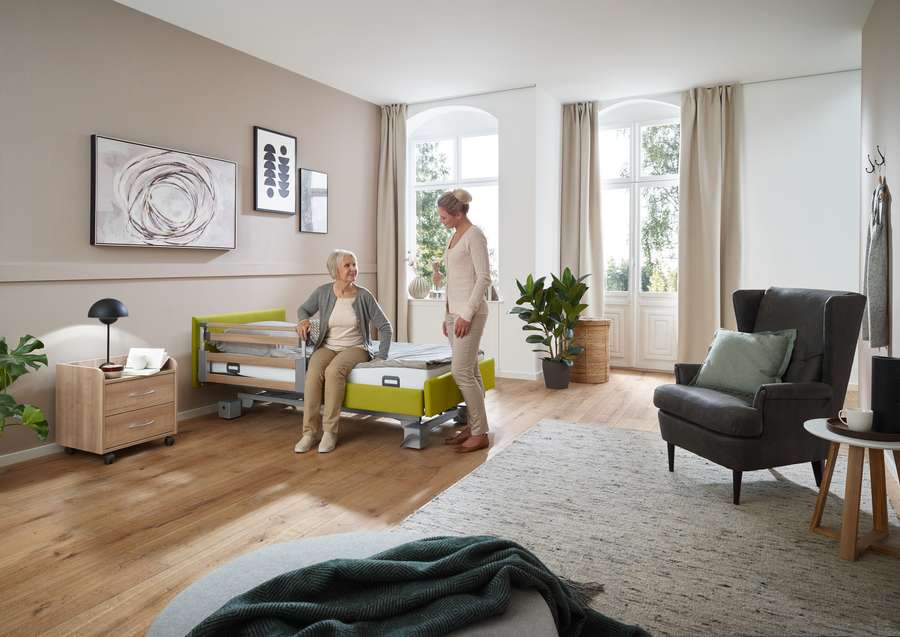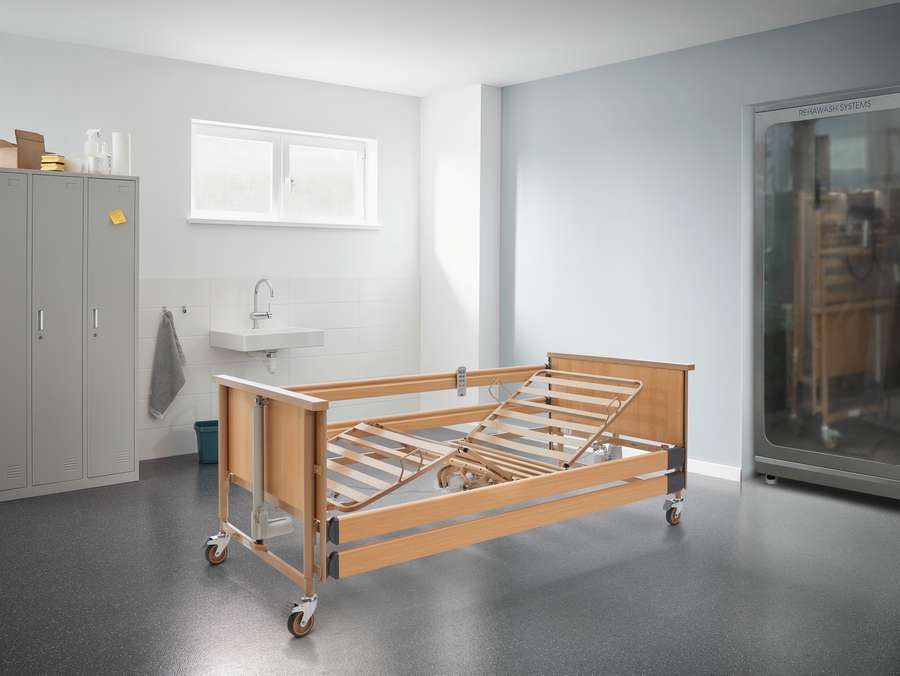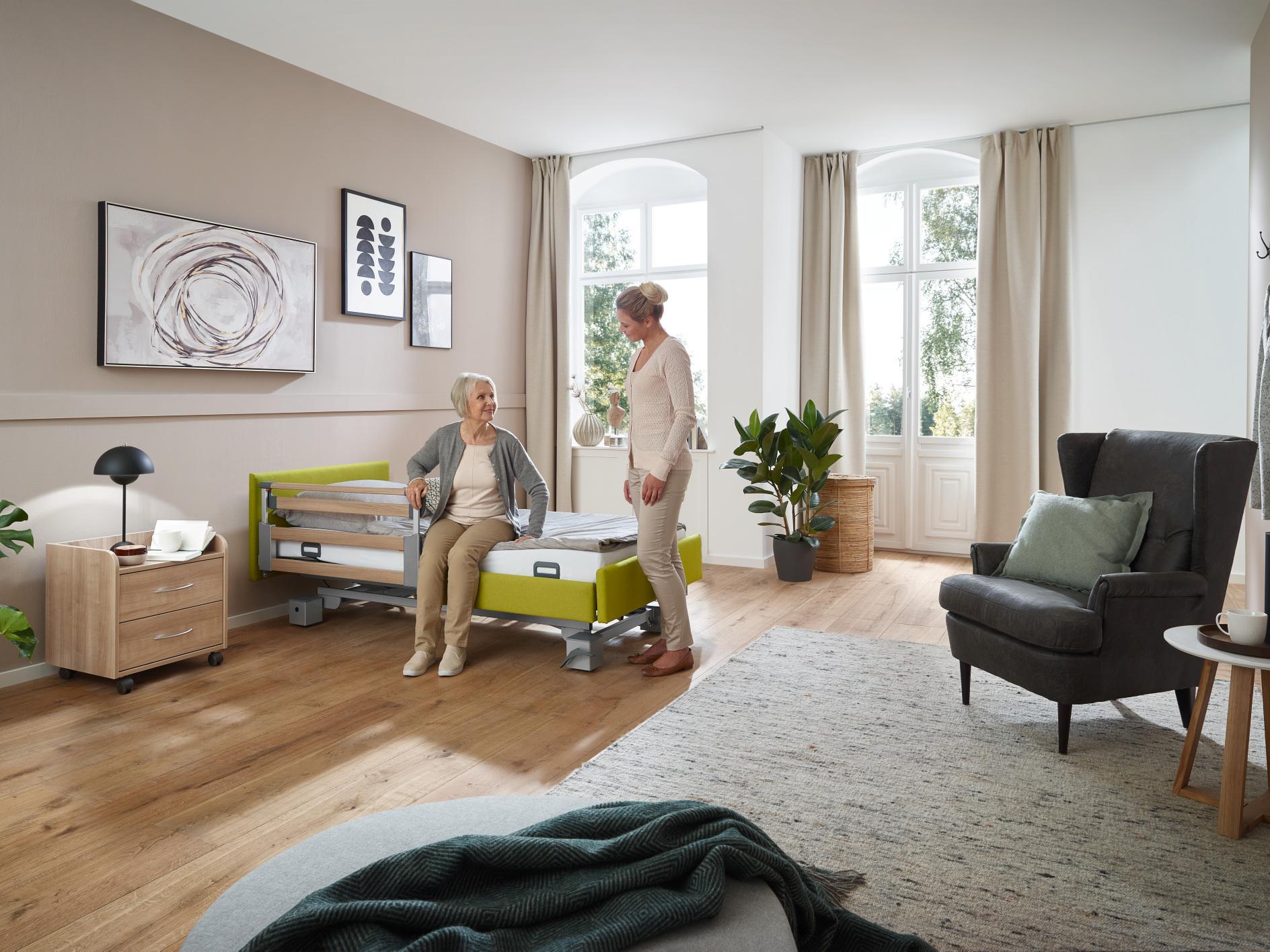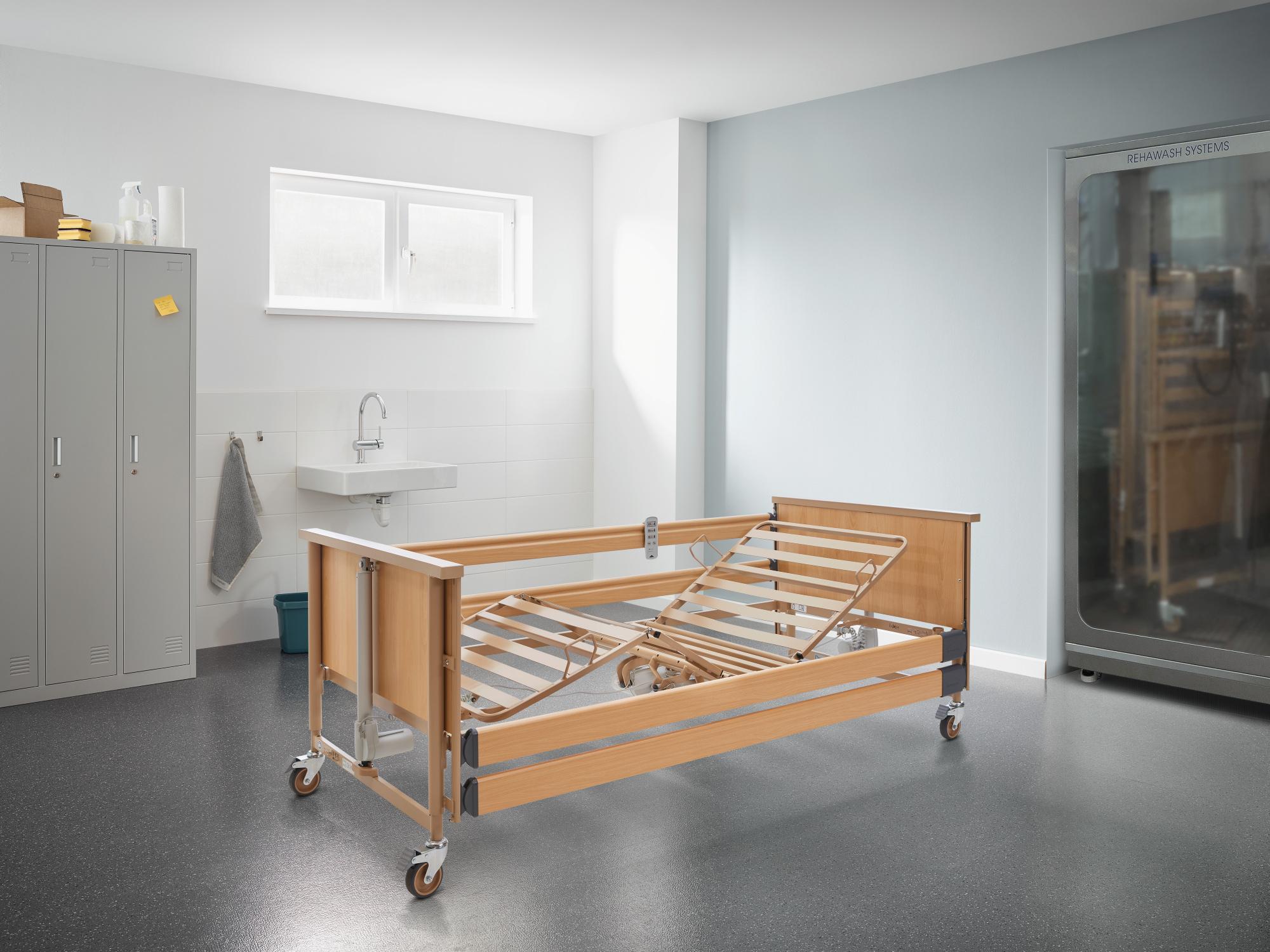
The MDR comes into force – Stiegelmeyer and Burmeier support you step by step
Marketing Product Manager Sven Koppelwiser answers questions on the EU Medical Devices Regulation

The new EU Medical Device Regulation (MDR) comes into force on 26 May, one year late. The Corona pandemic caused the delay. Despite the additional preparation time, many manufacturers, operators and distributors still have questions and fears. Sven Koppelwiser, Marketing Product Manager Homecare at Burmeier, knows the answers and solutions. In our interview, he explains what specialist dealers must now consider and how Stiegelmeyer and Burmeier support them.
What will change from 26 May for the medical supply trade when dealing with hospital and care beds?
Sven Koppelwiser: Basically, all economic actors – i. e. both the distributors and we manufacturers – should carefully monitor and accompany their medical devices throughout their entire life cycle. At the same time, the MDR requires distributors and manufacturers to cooperate even more closely than before.
Let's go through the new regulations together, step by step. What should medical supply stores consider when purchasing and delivering new products?
SK: Newly purchased devices must comply with the MDR requirements as of 26 May. This means that from now on distributors should only select suppliers who fulfil all MDR requirements. In addition, there should be a random sampling procedure in the incoming goods department to check that suppliers actually keep their promises. This involves, for example, the CE marking on the product label or the declarations of conformity and instructions for use in the respective national language, which must accompany the product. The new product is then stored or delivered, taking into account its storage and transport conditions. At Burmeier, these conditions can be found on the product packaging and in the instructions for use.
A new bed from Stiegelmeyer or Burmeier has – of course – passed all the checks and is now being delivered to a hospital, nursing home or household. What needs to be considered?
SK: Now it is very important that the distributor documents exactly which customer has received which bed. For the required market monitoring or in case of an incident or recall, this information must be retrievable in the medical supply store.
What exactly is "market monitoring" all about?
SK: Distributors must establish a plan in their quality management system to systematically monitor medical devices. This may include, for example, checking in with customers at regular intervals to ask whether the care bed is functioning properly. It must be determined how to deal with customer feedback and complaints and how these reports are passed on to the manufacturer. These everyday issues are part of "market monitoring". If, on the other hand, a serious defect occurs in a medical device, perhaps even causing injury to a user, the distributor has obligations in the context of so-called "vigilance". In Germany, for example, such an incident must be reported to the Federal Institute for Drugs and Medical Devices (BfArM). As manufacturers, we also call on distributors to contact us in such a case. The affected product should be withdrawn from circulation until the incident has been clarified.

Assuming a medical bed has been used without damage and is now being reprocessed before being used again. What needs to be considered? The MDR requires that a medical device "must not pose a risk to health, safety or other legal interests worthy of protection in the public interest". Does this also refer to reliable hygiene?
SK: Yes, distributors should define a reprocessing workflow in their quality management manual that delivers a validatable, continuous quality of results. In our opinion, automated cleaning processes are best suited for this purpose. Our Dali wash and Lippe IV washable models are optimised for cleaning in washing systems as well as for aerogenous disinfection with hydrogen peroxide. These processes effectively combat multi-resistant germs. We expect that, not least due to the Corona pandemic, the requirements for reliable hygiene will continue to increase in the future.

How much will MDR change the everyday work in medical supply stores?
SK: For many companies, the requirements of the MDR were already a matter of course. However, there is work to be done by distributors who do not yet have a quality management system. Their own processes have to be restructured so that they comply with the MDR requirements. Employees need training. And above all, many work steps must now be documented, and the documents stored for ten years. In our seminars, participants tell me again and again: "Then I'll create a folder for documentation." But there can't be one paper binder for every 10,000 devices. IT solutions are needed here. This also applies to the recording of product codes. From 2025, every care bed must be marked with a Unique Device Identification (UDI) on the product label within the framework of the MDR. It is better to scan these numbers than to write them down.
How will compliance with the MDR regulations be monitored?
SK: The regional supervisory authorities are responsible for this. In North Rhine-Westphalia, Germany, these are the district governments, in other German federal states the health agencies or the trade supervisory authorities. I expect that in the beginning it will be us manufacturers who will be inspected rather than the distributors.
How do Stiegelmeyer and Burmeier support the specialised trade with the new challenges?
SK: First of all, I would like to make it quite clear that all beds that are currently in the inventory can continue to be used indefinitely without retrofitting. Only from the cut-off date of 26 May will newly purchased products have to comply with the specific requirements of the MDR. At Stiegelmeyer and Burmeier, we were already prepared for the start of the MDR a year ago, so our beds delivered since May 2020 are MDR-compliant. The documents that attest to this are available in every instruction manual and upon request from your Stiegelmeyer or Burmeier representative.
Do we also support our partners in market monitoring and vigilance?
SK: Yes, we are in the process of setting up a straightforward communication system for joint market monitoring. The plan is that we will proactively write to the distributors once a year and ask them to enter their customer feedback online in a survey tool. In this way, we create a content structure that helps the distributors, for their part, to request the prescribed data from their customers. In the event of an incident, our safety officers guide the distributor through a structured process that complies with the standards. We examine the bed and help in the cooperation with authorities and insurance companies. This competent support is a great added value for all concerned. The experts of the Stiegelmeyer-Group advise important standardisation committees and have an expertise in the field of safety that is by no means a matter of course for every manufacturer.




